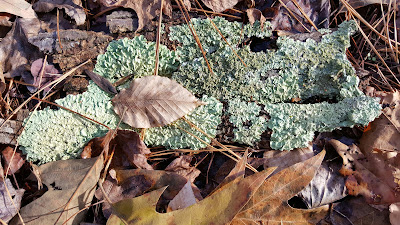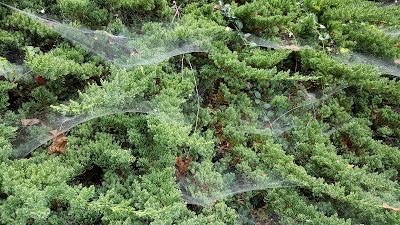On January 3, 2016 I posted a New
Year’s resolution on this blog. I
decided to bring more culture in my life. Well, I can report that although I
am bookending 2016 with museum visits, I failed miserably. But then 2016 failed me miserably, as
well.
First my latest museum visit. I had the pleasure to go to the Richmond Fine Arts Museum and visited the “Jasper Johns and Edvard Munch: Love, Loss
and the Cycle of Life” exhibition.
It was an impressive exhibit, an eye opener that show the
interconnectedness that we all have; whether it is conscious or subconscious,
as we later discovered. For example my
wife is a painter and as a 16 year-old she visited the Munch museum in
Oslo. Now finally, more than 45 years
later looking again at Munch’s work does she and I realize his influence on her
work, very much like Munch’s strong influence on Johns’ work. But then there is no way of living in a bubble
and escaping extraneous impressions we gather throughout our lives.
I am sure I have all kinds of extraneous influences that have guided me through my adult life and are still guiding me. It probably ranges from what I saw at home and what I saw around me as a child and teenager, to the things I experienced later on in my life, but in particular when living and working in Uganda.
I am sure I have all kinds of extraneous influences that have guided me through my adult life and are still guiding me. It probably ranges from what I saw at home and what I saw around me as a child and teenager, to the things I experienced later on in my life, but in particular when living and working in Uganda.
I do not think that this why I failed my resolution of 2016. But I do think these things are part of the reason why I write this blog and the philosophy I try to put down in words. I want to bet that my love for nature was formed by my wandering in the kunuku or the bush almost every day after school when I was a kid. I was observing and looking at things; the cacti that were blooming, the lizards, the humming birds flying from tree to tree, the troupial birds calling out, you name it. When I was not there, I was either sailing or snorkeling at the beach. I can still vividly remember the angry protest demonstrators (black minimum wage laborers) marching by our high school on their way downtown and later that day watching the smoke rising from above town when it was burning, set aflame by the rioters. The island was under marshal law for a week and the whites were panic stricken. We were among a group of white settlers who eventually left the island, remembering what happened in Congo (the country of my birth) a few years earlier. It never happened on the island and from what I hear it is still pleasant there. I did not understand the fear of my parents, it fascinated me and I resented them for having to leave the island. It all made me who I am today and the one I'll be tomorrow, not only as a person, but my hobbies, my interests and my passions.
So what was 2016 like? I visited the two museums, but for the rest I did not do much more culturally. I went to one opera and two classical concerts. As I mention in a previous blog, I try to read, but that is difficult after a hard day’s work, after a commute, with tired eyes and tired mind, and a slight case of dyslexia. I did finish one masterpiece of literature: Hemingway’s: The Old Man and the Sea, and boy that was a thick book (just kidding), but a masterpiece none-the-less!
So what was 2016 like? I visited the two museums, but for the rest I did not do much more culturally. I went to one opera and two classical concerts. As I mention in a previous blog, I try to read, but that is difficult after a hard day’s work, after a commute, with tired eyes and tired mind, and a slight case of dyslexia. I did finish one masterpiece of literature: Hemingway’s: The Old Man and the Sea, and boy that was a thick book (just kidding), but a masterpiece none-the-less!
At least that is what I can remember of my great cultural
effort of 2016. To me a walk in nature, being one with nature, soothing my nature deficit disorder, that is what I needed most in 2016. Yes, it can be the same old trail every day, that does not matter.
This past year failed me as well. Promises were given and broken. They ranged from raises; to oh, we would
never get this person as president, and now we going to be stuck with him for
four years. It is a year which is
showcasing the great divide more than ever.
We have been made more aware that there still is a divide between rich and poor, black
and white, and that black lives matter; it is almost becoming increasingly
dangerous to admit to be educated or cultured.
This schism in our country and culture is unbelievable, but it feels like the middle ground is lost; it is nothing this
blog can solve. Maybe it is time for me to keep going on my cultural quest and read Huxley’s “Brave New World”
again, or some other great novel on how to react or deal with what we have right now. I am taking suggestions!































